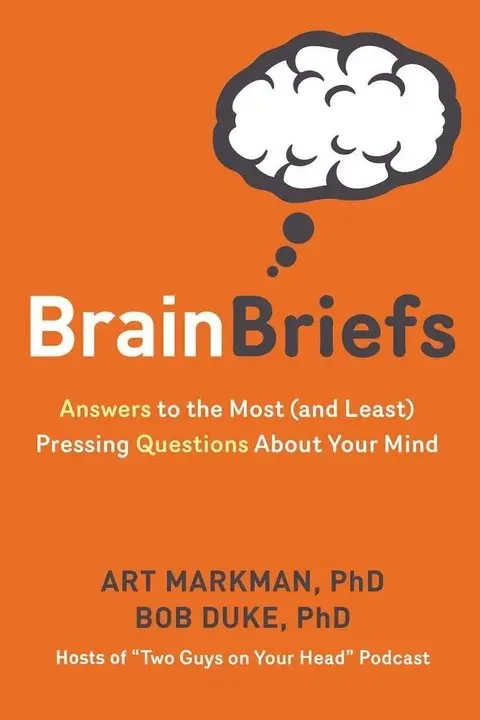First, some bad news: Starting in your early twenties, you begin to undergo a long, slow cognitive decline. When you’re in your early twenties, your cognitive capabilities are at their highest: You’re able to think fast, and your memory works at its best. From then on, your speed of thought begins to slow, and it takes longer and longer to learn new things. (You can teach an old dog new tricks, but you and the dog have to be more patient.)
But the good news about your long, slow cognitive decline is that it’s long and slow, which means that well into your seventies and eighties, you may not really experience much of a problem in most aspects of thinking. The functioning of a healthy brain doesn’t get that much worse just because it’s getting older. Brains usually decline in their functioning because of disease, strokes, micro-strokes, and brain injuries—not primarily because of age.
Of course, this seems to contradict many people’s experiences as they get older. Talk to anyone in their fifties, sixties, or seventies, and they’ll tell you stories about actors’ names they can’t remember, keys they can’t find, walking into rooms only to forget why they went there, and going to the store without a list and forgetting what they were supposed to buy.
As it turns out, much of the explanation for these occurrences isn’t really about what’s wrong with your memory, but rather what’s wrong with the way you think about your memory—namely that worrying about its impending collapse may actually hasten it.
How The Memory Decline You Fear Can Bring It About
Art has three kids who are still smack in the prime of their cognitive lives. They haven’t started that long, slow decline, yet they forget stuff all the time. Ask them why they forgot to do a homework assignment, and they’ll say, “I spaced.” Ask them why they forgot to empty the trash, and they’ll reply, “Oh, oops.” At no point after forgetting something crucial, though, did any of them say, “Oh no, I just had a ‘Senior in High School Moment.’”
Yet it seems that after many people turn fifty, they begin to assume that each forgetful moment is a sign of an approaching cognitive apocalypse. Each piece of information that cannot be accessed exactly when needed is interpreted as evidence of mental doom.
This over-interpretation of intermittent forgetting is not only wrong but may actually be detrimental. Studies suggest that one of the worst things you can do for your memory, ironically, is to worry about your memory. Researchers have long known that it’s harder to think and remember things under pressure. The amount of information you can keep in mind at any given moment shrinks when you’re stressed, making it harder to think flexibly. And all of that affects what you’re able to retrieve from your memory.
Research shows that even brief encounters with positive and negative information about memory and aging can affect adults’ ability to remember. In some studies, older adults read either a brief article claiming that memory gets worse with age or one arguing the reverse—that it doesn’t change much over time. Then they each took a memory test.
Sure enough, the group that read the more positive article didn’t do that much worse than a control group of college students (who were still in the prime of their cognitive lives). The group that read the negative article, suggesting that memory really does worsen, performed badly on the memory test.
Take Care Of Yourself–And Your Brain
Some more good news: There are things you can do to help your memory as you get older. Most important, take care of your brain. Many of the memory problems people experience later in life are the result of things they did early in life. If you enjoy a regular sleep schedule, and you avoid overdoing drugs, drinking too much alcohol, and sustaining sharp blows to the head, you’re off to a good start.

As people get older, their sensory systems tend to become less sensitive. All that loud music you listened to as a kid causes hearing problems later in life. Cataracts and retinal issues can cause problems with your vision. Even your sense of smell can weaken. As your senses dull, the information that reaches into memory to pull out information weakens as well, which can make it harder to retrieve information later. So it’s important to get regular checkups to make sure that your eyes and ears function as well as possible for as long as possible.
Finally, make sure you remain a lifelong learner. Lots of studies demonstrate that the more education you have, and the more actively you continue to learn throughout your life, the longer it takes for signs of decline to appear. Education doesn’t protect the brain from damage, but it does create lots of different ways to solve problems and remember things.
And remember that the belief that memory gets worse as you get older can become a self-fulfilling prophecy, so do your best to forget those senior moments—literally.
This article is adapted from Brain Briefs: Answering Questions to the Most (and Least) Pressing Questions about Your Mind by Art Markman and Bob Duke. It is reprinted with permission.
Recognize your brand’s excellence by applying to this year’s Brands That Matter Awards before the early-rate deadline, May 3.
